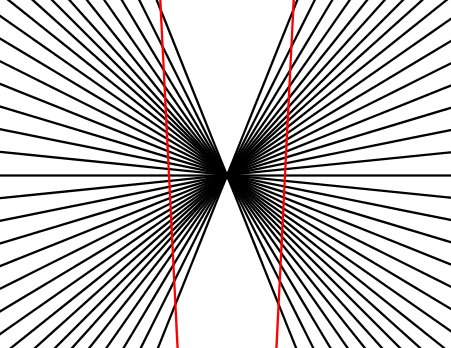Christianity - A trick of the mind?
 Regular columnist James Knight considers the maturity needed to discern the reality of Christian faith from worldly replacements.
Regular columnist James Knight considers the maturity needed to discern the reality of Christian faith from worldly replacements.
Some people claim that Christianity is merely a psychological trick that our imagination plays upon us - and sometimes it does look as if it is a replacement or substitute for the real contentment we have failed to achieve on earth. At times it seems so very likely that our rejection of the atheistic world is only the disappointed cat's attempt to convince itself that there is no mouse in the hole.
To many, the theory that Christianity is simply a replacement has a great deal of plausibility. Faced with this proposition, the first thing I would do is try to analyse the realities for which things are replacements - for in doing so I'd find the proposition needs to be questioned a lot further. Here are three illustrations that will show what I mean.
When I was in my early teens I knew two rogues who secretly drank their stepfather’s alcohol. Their stepfather had a fridge full of cans of lager which he would drink on a daily basis, and he had one or two bottles of whisky in his cabinet which he would usually keep for visitors or special occasions. The two boys liked lager very much more than they liked whisky. But every now and then there would come a day when their stepfather had let his supply of lager get so low that the boys thought the theft of even one or two of the cans would inevitably be detected.
On such days, they would drink the whisky instead, and the eldest would say to the youngest, ‘We will have to put up with whisky today’, and the youngest would reply, ‘Well I suppose whisky is better than nothing’. This is a true story, and one that provides a very good example of the value to be attached to anyone’s first reckless ideas about a reality and a replacement. To these boys whisky was simply an inferior replacement for lager. And, of course, the boys at that stage were quite right about their own feelings; but they would have become foolishly wrong if they had therefore inferred that whisky, in its own nature, was merely some kind of makeshift lager. On that question their own innocent childish experience offered them no evidence; they had to learn the answer by being told differently, or else wait until they were older and mature enough to appreciate both lager and whisky.
Here is another example. When I was growing up I never went to see live music; I would listen to all the music I liked on tape, vinyl and (later) compact disc. I had become so used to the songs recorded in the studio that when I did eventually go to see some of these artists live I was disappointed with them because they did not produce the same sound that they did when played through my hi-fi. The live music lacked the polish I had come to expect. I felt that the live music was not ‘The real thing’. This is an even better example than the first, because recorded sound is precisely a replication, and live music is the real original thing. But given all that I was used to at the time, the reality appeared to be a replacement and the replacement a reality.
And finally, during a mayonnaise drought at my local supermarket in my teenage years, I had to use salad cream instead for about a week. Now at first I would have been reluctant to call it an inferior replacement because initially I was enjoying something different to mayonnaise. But as soon as the stocks were replenished and I had mayonnaise back on my plate I never wanted to see salad cream again. This is different from the previous examples because here I started knowing, which, in fact, was the replacement. The mere immediate taste of salad cream did not confirm that it was a replacement as such, because at first it seemed just as nice as the mayonnaise. It was only after a period of time that the salad cream revealed itself to my senses as inferior to mayonnaise.
Just about every department of life furnishes us with examples of how the reality and the replacement can deceive. To the philanderer, faithful love appears at best a mere bread and water replacement for that exciting and tumultuous world of infidelity that has become the main source of thrills. The young ears that are delighted with manufactured pop music are often deaf to the exploratory delights of The Beatles, Bob Dylan and Pink Floyd. And great literature can seem at first, to inexperienced taste, a pale refection of the superficial or trashy pieces of fiction which it prefers.
The upshot is, cursory impressions are often of little use at all in deciding which of two experiences is a replacement or second best. At a certain level all those sensations which we could expect to find accompanying the real satisfaction of a fundamental need will accompany the replacement, and vice versa. The key is in finding out which is which.
If those two rogues I mentioned earlier had really wanted to find out whether their view of whisky and lager were correct, there were various things they might have done. They might have asked a grown-up who would have told them that whisky was actually regarded as the greater luxury of the two, and thus had their mistake corrected by authority. Or they might have found out by their own investigation - that is by asking a shopkeeper which of the two were more expensive, and having found out that whisky was more expensive than lager, they could have inferred that whisky could not be a mere replacement for lager. Finally they might have practiced obedience, and waited until they were old enough to drink - in which case they would have drawn their own conclusions from an adult experience of the two drinks.
With these illustrations I am simply trying to put the whole problem of psychological trickery the right way round; to make it clear that the substance or value given to experiences depends on the increased widening of our perceptive tools to try to capture all the realities those experiences may inhabit. Believe in God and you will still have troubling moments when it seems that this material world is the only reality. On the other hand, disbelieve in Him and you will still face hours of serious, deep contemplation when this life seems to shout at you that it is not all there is.
People who have become Christians are people who've found out that what at first seemed like an ersatz replacement to the real truth is, in fact, the real Truth with a capital "T". They are in some way analogous to people who've discovered The Beatles and Bob Dylan after ditching manufactured pop; or who've discovered Charlotte Bronte and Fyodor Dostoyevsky after ditching Mills & Boon; or who've discovered the delights of faithful love with a beloved after ditching the life of being a cad. It's true that those examples are subjective, whereas Christianity's Truth is objective - but subjective experiences are so often compelling precisely because they are signposts to Christianity's Truth.
 James Knight is a long term contributor to the Network Norwich & Norfolk website and a local government officer based in Norwich. He is also a writer for the London Institute for Contemporary Christianity.
James blogs regularly at The Philosophical Muser
The views carried here are those of the author, not of Network Norwich and Norfolk, and are intended to stimulate constructive debate between website users.
James Knight is a long term contributor to the Network Norwich & Norfolk website and a local government officer based in Norwich. He is also a writer for the London Institute for Contemporary Christianity.
James blogs regularly at The Philosophical Muser
The views carried here are those of the author, not of Network Norwich and Norfolk, and are intended to stimulate constructive debate between website users.
We welcome your thoughts and comments, posted below, upon the ideas expressed here.
Click here to read our forum and comment posting guidelines
You can also contact the author direct at j.knight423@btinternet.com